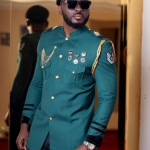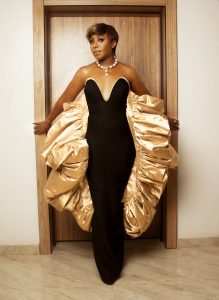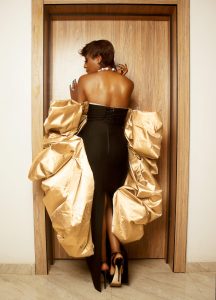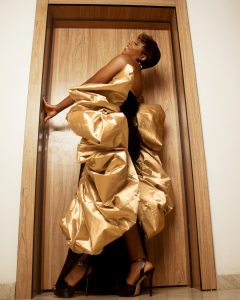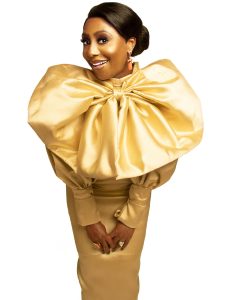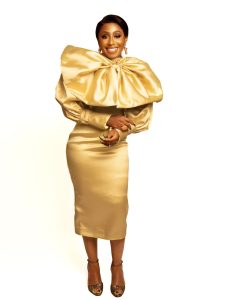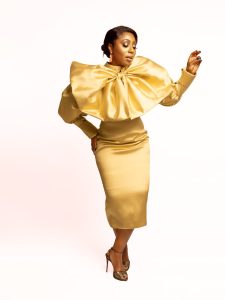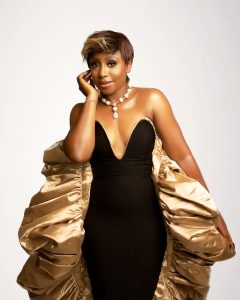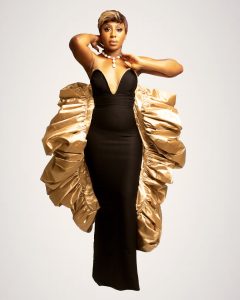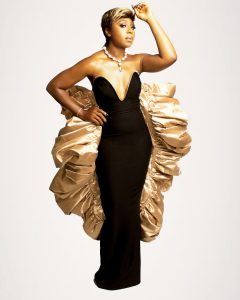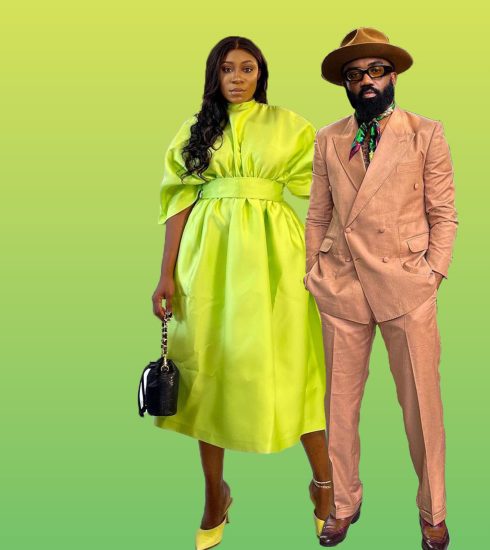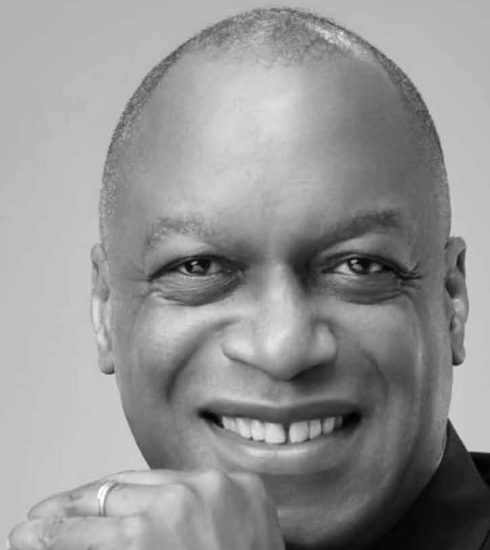Family And Career, A Woman Can Have It All – Dakore Egbuson-Akande Speaks
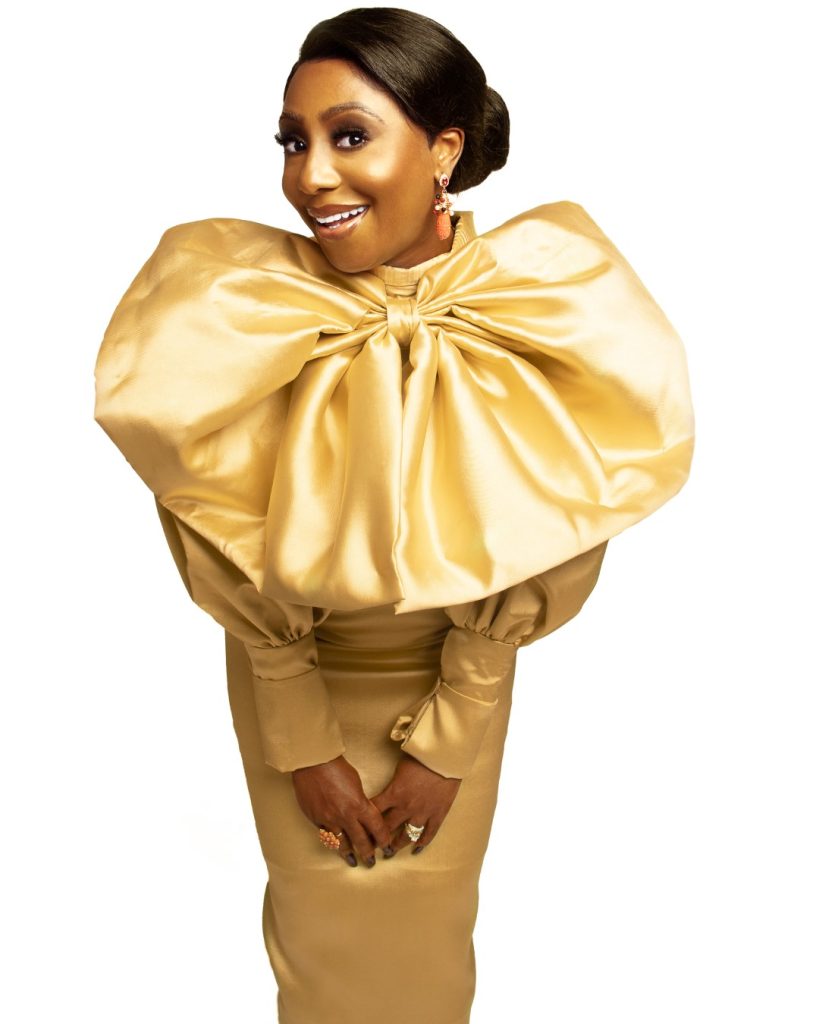
Dakore Egbuson-Akande
In the early 2000s, Nollywood witnessed the coming of age of an industry that began to show signs of its true potential. One of the names that define that er was Dakore Egbuso. The Bayelsa-born multi-talented creative, who quickly became a fan favourite, gained a reputation as one of the most sought-after actors of her generation, thanks to her execution of difficult nd non-conventional roles.
However, just as she was about to enter her supposed peak years in acting, she left the movie scene abruptly to cater to her marriage and family. In a fleeting industry packed with so many talented acts, the Dakore brand was one that stood out, and her absence prompted the question, “where is Dakore?”
Half a decade later, Mrs. Dakore Egbuson-Akande – now mother to two beautiful daughters – made her comeback to movie screens and hasn’t looked back ever since. To discuss the hiatus that has been the subject of several rumours, her early beginnings which saw her drop out from the University of Lagos to pursue a carreer in film and music, and her battle with depression while she was away from the art, DOWNTOWN’s Kehindé Fagbulehad an interesting chat with the veteran that affirms that the Dakore brand has and will always be close to our hearts.
Tell us about growing up and how you got into acting.
Growing up was great. It was intense in our household [laughs]. I am the firstborn, so I am the pacesetter in the family. With entertainment, that actually came from my parents. My dad and mum in their own rights are lovers of music, dance, and art, so it’s not too surprising that we all turned out this way. We are all artistically inclined in my family, just to different degrees, I guess in the sense of who has actually used that art to become a career – it’s just me and then, of course, my brother Timini who’s also in the film industry. Art and movies were very much prevalent in our home; there was always a new movie out that we were always trying to watch, or a new dance step. And gratefully, we were encouraged to express our individuality and our art. I went to Federal Government Girls College (FGGC), Bauchi. I started early, so by the time I turned 15, I was done with secondary school. Then after writing JAMB twice, like most kids [laughs] and the results weren’t forthcoming, I decided to do a diploma in Mass Communication at Unilag.
I did that for a year and went to work at an advertising company called Casers Advertising now DDB Casers. That was amazing for me because I majored in PR and Advertising and so I was always fascinated with that world, but then I realised that nine-to-five wasn’t for me. I was at the job for about a year before I eventually got fired… I had partied too hard on a weekend and didn’t show up at work for two days. (laughs). However, while I was working at the advertising company, there was a PR and television production company right across the street and I had built relationships with them so as soon as I got fired, they offered me an audition slot that was open…
…For a movie role?
No, it was for a TV presenting role; that was how I started. I was presenting sports on NTA 2 channel 5 and Channels TV back then. It was a really great experience. That was when I met another film producer who at the time was doing TV and then, she said she liked the look of me and asked if I would audition for a role. I did and got it, and that was how I started in television acting. From there, she told me she would contact me and I went back to school for my degree. A year later, she did… that’s Emem Isong, she’s now a prolific producer, and I’m honoured to have been her muse. I was in about four of her first films and they were all hits by the grace of God. After shooting four movies, there was an actors’ strike, so none of the films could be released and it was very frustrating for me because I had been working back to back, expecting to get a head start on my acting career which didn’t seem like it was going to happen because of circumstances out of my control. Added to that, there was an ASUU strike for me, I was just done at that point and then I started travelling to the UK. While I was in London, I was kind of trying to find myself as an artist and started doing more music. At the time I was playing in small clubs around London, using that to meet other creatives and just get in the swing of things. This was between 1999 and 2001.
All this time, totally oblivious to me, all the movies that I had shot started coming out and then people were like “who is this lady? Where is she?” I was living a bit of a hard knock life in a sense, not really sure if it was going to pop off in London, not really sure if what I had done was going to make any impact at all. And then I got reached by the New York African Film Festival for one of the films I had shot that was an emotional cracker; I played the first bisexual in the film and that really piqued their interest that they selected the film to be screened in New York. So that was how I went back into film and from there, producers just kind of rushed me like ‘hot bread.’ I was sought after, people wanted me in films, and so I started shuttling between Nigeria and the UK.
I didn’t finish University but leaving in my third year, a year shy of graduation, I am still educated [laughs]. And I’ve not done too badly with my life and career, so I’m not defined by things like that. I’m very grateful for my journey and the fact that it’s not been cookie cutter but it’s been exceptional nonetheless.
You talked about the adventure and doing new things from acting to music, dancing, and even ballet classes. It’s very clear to see how you’re in love with art. But then you went on a hiatus during the early years of your marriage. That must have been tough. What was that about?
That was a culmination of a few things. Yes, my status did change, but before I got married, I was already disillusioned with the direction Nollywood was going in at the time. Back then, we were dealing with a lot of disdain for Nollywood because of technical issues like sound and picture quality, you know, during the VCD era, people didn’t really rate it, except on a mass level. Back then, there was a trend of producers making one-part films into four parts and that used to drive me totally insane because it really affected the quality of the films. They had to have a lot of fillers, a lot of scenes that didn’t make any sense just to extend the story and it was so watered down. It was painful because you read the script and you are like “oh my God, this is how it’s going to come out” and then you watch the films and you are like “what the heck is this?” So I was very unhappy with the industry at that time, it just happened to coincide with the time I met my husband.
I didn’t plan to stop working, it just kind of happened and then I think there were some expectations on the part of society that “oh she’s now married, that’s the end” and I didn’t say anything either because I was also trying to figure out what I wanted to do with myself. But I always knew that I didn’t want to be rushing from set to set with kids coming. I wanted to be home, to really give that attention to my family the way my mother did for my siblings and I. So that just turned from one year to two years until it became five years and two babies later and I was like “okay, I’m done” [laughs]. In hindsight, I missed my life and I fell into a bit of depression, unknowingly. I was enjoying being married, being a mum, and all of these things but the core essence of my being was not being utilised. So it manifested in depression because although I felt fulfilled as a mother and a wife, I didn’t feel fulfilled as Dakore. I had to go through a soul-searching period, which was when I realised that it was because I wasn’t utilising my gift, so I made my plan to get back on the horse. I was actually shocked because people cared that I had disappeared. That was a very touching aspect of my journey because it wasn’t like I forced myself on people, this was my calling, it was something that wanted me to be part of it. So I went to acting school for a year in Chicago because we were living there at the time. I studied film for TV and commercial techniques because I knew I wanted to work in commercials, working with brands and stuff. It is so funny saying that now and for everything manifesting. I think it is important to have a clear vision of what you want to do and have a plan of action.
How did it feel on your return?
It wasn’t easy because when I came back in, people didn’t believe that I needed to work. I guess for the fact that in their mind, I married into a rich family. Which is what society does, you know. It has a way of putting stuff on you that is not even about you, it is about their expectations. So I had to prove to them that this is what I do for a living, this is what I deserve to be paid for. But in the early days, I couldn’t really talk much about that; I just had to show that I really wanted to be back at work. I had to shoot six films, the first one was Journey to Self and then eventually got a role in Fifty. Fifty became a hit and everything changed.
There were a lot of rumours. There was one with your husband’s family not welcoming of you. That it was them that ordered you away from the spotlight.
That’s true in the sense that there were a lot of rumours. Up until then, I had never had any kind of speculation about my personal life, and I had been in the industry then for about 10 years, so it was totally new territory for me. I was just kind of frozen by the stories and what people were saying. Meanwhile, in my head I’m like ‘this didn’t happen, where did this narrative come from?’ Like I said, I think it is the expectation that a woman couldn’t possibly have a great career and a marriage, it has to be one or the other. But I’m so happy that I’m here to dispel that – still being married and still kicking ass, by the grace of God. Thankfully it’s not in my nature to wait around for anyone’s approval and sadly people fear what they don’t understand. The only person’s approval I seek is from God. One with God is definitely in the majority and I’ve made my peace with that. My husband and I, have a bond, we have beautiful children, and there are so many wonderful things that are happening for us that I have just chosen to not look at all those things, but it’s okay, it’s all good [laughs].
Chief (my late father-in-law) of blessed memory never asked me to quit acting. That’s unfair to say that he did. I decided that I wanted to give time to my family and when the time was right, I felt that urge to go back to work and I did. A woman always has a choice. Now I’m back to work and I’m going nowhere.
Still on rumours, there was another one that there was a breakup in your marriage. How did that rumour develop?
That was crazy to me. It was like a new year’s present, it was the first week of January 2020, and it was gbas gbos! My husband was downstairs, and I was upstairs and I said to him “apparently, I’ve moved out” [laughs]. Every marriage has issues, so I’m not going to sit here and be like it is always hunky-dory. We’ve been together for 15 years and married for 11 years, I think that is a lifetime, especially now with how marriages are these days. We’ve had our ups and downs; we still have things that we’re working through even now because we’re two totally different human beings who come from two different schools of thought. The separation rumours were horrible though, and to think it started because I posted a picture of myself in a bikini at night-time; it wasn’t even a daylight bikini photo. It was night-time and we went all artistic with it. It is still on my page oh. I dare not take it down. That just shows you our society and how they think women are supposed to be, especially a married one. There’s a certain way you are supposed to act and it is very oppressive, but do I care? [Laughs].
- Dakore Egbuson-Akande
Since coming back, how do you view the sort of roles that you play and the impact that they have in society today?
Honestly, I think if you look at my body of work, from the beginning of my career to now, I’ve been very deliberate about the films that I’m part of. I’m not in every film and that’s been by design. For me to feature in a movie, the story has to mean something to me. It has to push the narrative for me, it has to shed light on things that people wouldn’t normally want to talk about. Like in Isoken, the pressure that women are under to get married is insane. And I actually went through it too when I was dating my husband. That’s why it really resonated with me because I understood the pressure. So those are the kinds of stories that I am drawn towards; things that are long-lasting, that will help to change the agenda. And I think that also ties in with my mass communication training because that’s what I studied in the university. I learnt in school that the power of the media is to set an agenda. Unfortunately, it seems like we are not doing enough of that in our films. I think there are a lot of frivolities going on, or just parading for the sake of it.
I think the work picks me and I also pick the work in the sense that it has to really showcase the times that we’re in. It’s a gift.
You mentioned a Nollywood habit of always breaking films into parts, but it is still prevalent today. In fact you are in Chief Daddy 2 that’s scheduled to be out New Year’s Day.
That’s totally fine because it’s its own entity. It’s not a script that you’re getting 50 pages and then you get to set and then it’s become 100 pages. This one is part 2, it has been conceptualised totally, picking up from where the other film stopped. So that’s natural, that’s fine. Those are two totally different things.
What should we expect from Chief Daddy 2?
Supersized laughs and intrigue because part 1 ended on a cliffhanger, so you are going to get that resolved, and then another round of issues coming. And of course, Remi Castle comes in to try to save the day and bring some sanity into the home. Being that part 1 was a major hit and people want to see more of that, so in that sense, it makes sense because people want to see it. It’s not like you are just choking them with it, which was what was happening back then.
You played Remi Castle in Chief Daddy and Castle & Castle. What was that about?
It’s like a Marvel thing, so we kind of have our own universe going on. Yay EbonyLife! Basically, they needed a lawyer in the film to deal with the issues of the Will. It was a crossover, like a transplant and it worked. I’m also very grateful for Castle & Castle for being such a hit and season 2 is doing so well too. I can’t wait for seasons 3 and 4 and 5 [laughs].
But that’s being a real blessing because honestly when you make these films, you hope for the best, you’re not really sure how the audience is going to respond. Will they care? Will they fall in love with these characters? But they have and I’ve been so grateful to be part of these films that have been so successful. And they keep me working, excited, and keep my fans happy.
Are there any new projects we should look out for?
Yes, my most recent work, a feature film that I co-executive produce and star in called Blaqout. The lead character, a young Nigerian female singer played by me, is an antihero and you’re going to love and root for her; although, you might hate her at first.
I wrote the story and I also flexed my musical muscles as well because I co-composed original music for the film. For me, it is about pushing the boundaries of what it means to be an artist, and a female artist regardless of whether I’m married or a mother, this is me as Dakore and there are things that excite me and there’s a reason for that and I have to honour that, I have to follow that as crazy and as scary as it is. That’s what makes me feel alive.
- Dakore Egbuson-Akande
When are we expecting it?
I’m in post-production now; we finished principle photography this past November 2021. I had a stellar cast. I had Gideon Okeke, my brother Timini, Tina Mba, Jim Iyke, Femi Branch, Ikechukwu and about five new talents you’ve never seen before because I feel like that’s also what we need to be doing, to give other actors a chance to shine and they’ve all shone in this film. Seyi Babatope directs it. It should be good to go by Easter 2022.
Are we expecting to have Dakore, the music artist, back then?
Yes, next year, like I said. Making music is such a joy for me. For my new film, I play a young Nigerian female Afrobeats singer, so we had to create music that she’d perform. I started working in the studio two years prior to filming, building the music, and building the character through the music, so by the time we shot, I had everything down; it was fantastic. I hope there’s a place for my sound. I’m excited. I’ve been holding back for a very long time. A bit afraid, but I’m doing it afraid, I’m doing it terrified actually. And my daughters actually motivate me.
Sometimes they hear music on the radio and they’re like “mummy why is your music not on the radio?”
Your role as an ambassador for Global Citizen is quite impressive. You shed light on the VAPP Act and the ongoing campaign to shun gender-based violence.
Yes, the Violence Against People Prohibition Act.
Obviously, legislation is a good place to start. However, in the shame-based society that we live in as we have established, the victims are not even willing to come forward because of that.
You can expect that because we are in a society that does not hold people accountable, so what’s the point of exposing yourself to ridicule? But I feel like the tide is turning. I feel like with all the work that my colleagues and I have been doing, it is beginning to humanise them. Also, I don’t like to call them victims, they are survivors, they are still alive, they’ve lived through something that is so traumatic and so devastating but they’re still standing, they can still tell their story. So I feel like the shame is now beginning to be thrust back at the perpetrators, as it always should’ve been. The VAPP Act is great because now it has been adopted by 30 of the 36 states. But then we now need implementation and I feel like that’s where we get stuck in Nigeria. We don’t hurt for laws, we have laws all day, but are they being implemented? Are they being enforced?
Let’s discuss the entrepreneurial aspect of your illustrious career. Tell us about Dakore Beauty.
I would love to talk about Dakore Beauty, that’s my baby. I am such a beauty freak; I love makeup, and skincare. I always get asked about what I use for my skin and I met a girl that was one of the recipients of a programme (Dare2Dream, a youth empowerment reality TV competition put together by my sisters Caterina and Fran) I used to be a juror on the show and this young lady went into skincare and was making really nice stuff, so we collaborated and created this line. Being a natural hair care enthusiast, it has now progressed into natural skincare. Hence the line.
How many brand endorsement deals do you have?
I have Amstel Malta; you know I’ve been very blessed. Amstel Malta is actually my longest running endorsement, they’ve been working with me for such a long time and I love them so much. I also have 2Sure, and Samsung Nigeria. Shout out to my management team, Upfront and Personal. I’ve been very blessed and I think it’s also because people can see that I’m my authentic self.
It is very easy to look at your life and how ‘perfect’ it is. How do you respond to people who don’t exactly relate with you when they hear that you actually battled depression?
Depression sets in when you least expect it. It creeps up on you even when you seem to have it all together which was my case because on paper I was happily married, I got pregnant soon after, but the truth is life can hit you sideways even when everything seems like it is going well. And for me, it was also because there were unresolved personal issues before getting married. And as artists, we tend to feel things on a much deeper level. Also being in a space where I didn’t have my career to distract me, I was confronted with all those elephants in the room and they can close in on you. So I had to confront, I had to heal. I am still healing from some and the time hasn’t come yet for the story to be told. But it is coming. I realise now that nobody has a perfect life, so we all have to practice contentment so we can find our true inner joy.
Depression does not have to define you. It is something we all go through in life if we want to be honest with ourselves. We all have low moments, the times when you are feeling weak and beat by life, but what is important is not dwelling there and knowing when to get up and out of it. Those were the things that I learnt and incorporated into my life – exercise, diet, nutrition, mental health, drinking water, and minding your business, they are major keys.
In the spirit of family and Christmas, do the Akandes have a Christmas tradition?
Yes, we do. Every 1st of December, we have our tree up. We had some additional decorations a few days ago. So it’s like a Christmas wonderland in the house right now. Christmas day is always awesome – we come down, open the presents, and of course my daughters are so effervescent and the energy in the house is always so amazing. We definitely love Christmas and we share it with family. My extended family comes, my mum, my siblings, so we are always in each other’s houses, making merry and enjoying each other’s company. Christmas is really good and I think having kids has deepened my appreciation for Christmas, and it is exciting.
Cover Story Images by Gift Eghator @graphedbyblue
Champagne Midi Pencil Dress With 3D Bow:Stella Emami @firstlady
‘DEMI’ Teardrop Earrings and Aaliyah Cluster Ring Gbenga Artsmith Jewelery @gbengaartsmith
Makeup: Evelyn Onwukah @radiezbyeve
Hair (Cover Look): Bold Oluwatoyosi Sunmola @oludavid
Hair (this look): Toyin Meriben @vaaavavoom
Styling And Creative Direction by The Editor : Onah Nwachukwu @onahluciaa
Self-identifies as a middle child between millennials and the gen Z, began writing as a 14 year-old. Born and raised in Lagos where he would go on to obtain a degree in the University of Lagos, he mainly draws inspiration from societal issues and the ills within. His "live and let live" mantra shapes his thought process as he writes about lifestyle from a place of empathy and emotional intelligence. When he is not writing, he is very invested in football and sociopolitical commentary on social media.



